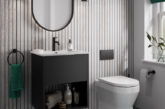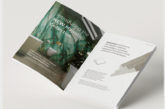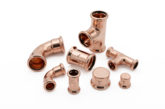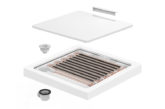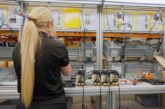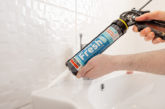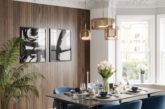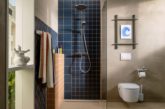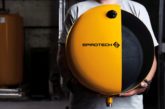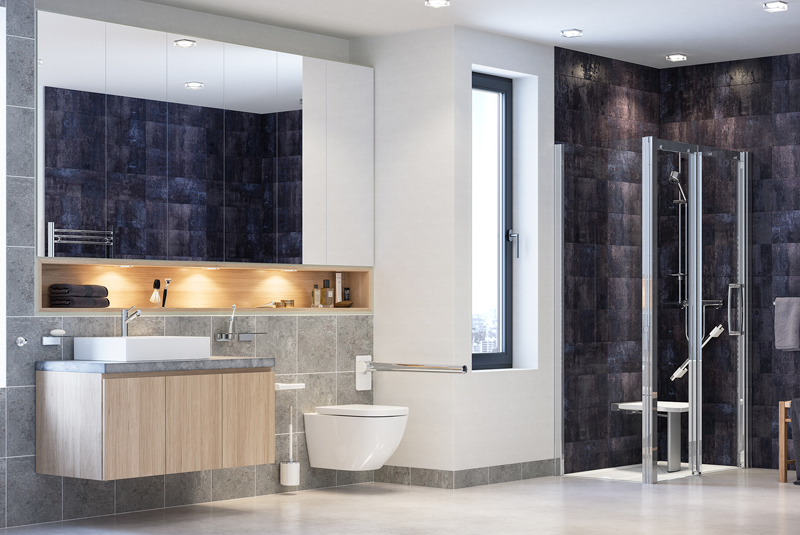
Stuart Reynolds, Head of Product and Marketing at AKW, discusses the rise of the private-pay sector and how installers can claim a piece of the growing adaptation installation market.
The demand for inclusive bathroom adaptations continues to rise and AKW is noticing an increase in the private-pay sector for adaptations, as the Disabled Facilities Grants (DFG) cannot keep up with the increasing demand for accessible bathrooms. This creates an opportunity for installers.
The increase of private-pay customers
The Equalities and Human Rights Commission report ‘Housing and Disabled People – Britain’s Hidden Crisis’ called on the UK government to take urgent action to make homes adaptable and accessible to everyone. However, with county council budget reductions and staff redundancies, the DFG has been put under increasing pressure.
With funding delays and OT staffing challenges, public provision for disability equipment and adaptations has become harder to access and this has led to an increase in the private-pay sector. The structure of the UK’s population is also undergoing a seismic shift, with people aged over 65 now outnumbering those aged 16 and the number of retired people set to grow by 2050 to 34.2 million. The number of households headed by a person aged 65 and over is also predicted to rise to more than seven million by 2021 and these property owners have high expectations when it comes to what they want from their homes.
The stigma of adaptation equipment
Although these homeowners are savvy about spending, they are not prepared to settle for a house that is dated or clinical when it comes to having adaptations to accommodate age-related health conditions and mobility problems. As a result, they often turn to installers for advice on how to create functional, multi-user spaces that offer both high-end contemporary design and support for changing living requirements – particularly in the bathroom where accessibility can prove a problem without the right equipment.
The number of people looking to installers for inclusive living adaptation advice has grown dramatically due to the difficulty in getting government funded alterations. In fact, research by AKW has shown that the influence of installers is so great, that nine out of 10 consumers’ installation choices are now based on the installers’ recommendations.
Equally, leading adapted living solutions providers are working to take full advantage of the growing commercial opportunities that private-pay customers represent and are introducing solutions to help older people to transform their bathrooms, so they can safely and comfortably remain in their homes for as long as possible.
Taking a fresh look at adaptation equipment
Wet rooms, in particular, are hugely popular with private-pay customers, as they provide a safe, level access alternative to traditional shower cubicles and baths that are also stylish. While they offer multi-user households a truly inclusive open-plan showering area, the latest wet room technologies also provide plumbers with quick and easy to install, watertight solutions. For instance, the latest generation of wet room formers feature a built-in gradient to ensure correct drainage levels and are simply fitted beneath the floor of a room. These durable, high load-bearing devices also offer maximum flexibility, as the leading products have offset waste positions and are strong enough to fit straight onto joists.
Although wet rooms are proving popular, some homeowners are not prepared to do away with the possibility of a bath altogether. In such cases, many are choosing the ‘Bathroom for Life’ option. This is where a wet room former is installed during the construction or renovation of a bathroom and the waste positioned for connection to a bath. Then, as the needs of the homeowners change, the bath can be removed and the room quickly converted – typically in half a day – to a wet room with minimal adaptation costs and disruption. It can also be converted back to a family bathroom at any time just as easily if and when required.
For those customers who are looking for bathroom adaptations such as grab rails and shower seats, yet want products that blend seamlessly into the existing look and feel of their home, AKW has been working with occupational therapists to design a range of design-led adaptation products. The Onyx range brings contemporary design to inclusive bathroom solutions. With minimalist design, tactile finishes and chrome, black and white colour options, these mobility aids can be incorporated in a stylish, inconspicuous way into any home. Space saving details such as rails and shower seats that fold away when not in use have also been included.
The shifting demographic and the increased difficulty in obtaining government funding for bathroom adaptations looks set to grow the opportunities for more bespoke, private-pay installations. Now there’s a wide range of products available for any inclusive bathroom design. Whether the customer is looking for a competitively priced wet room, or a modern twist on traditional adaptation equipment, the installer now has something to suit any customer’s budgetary and style requirements.


